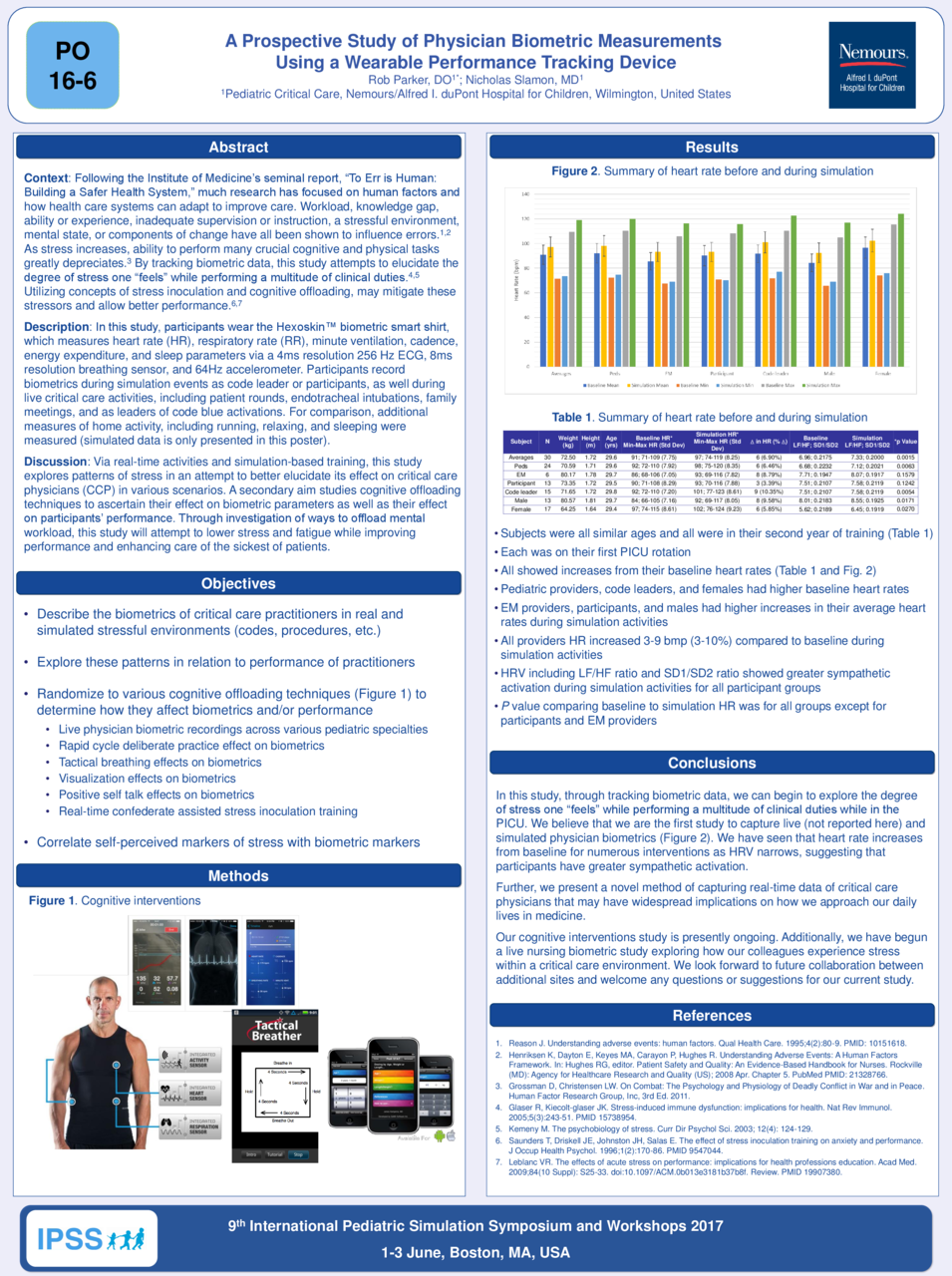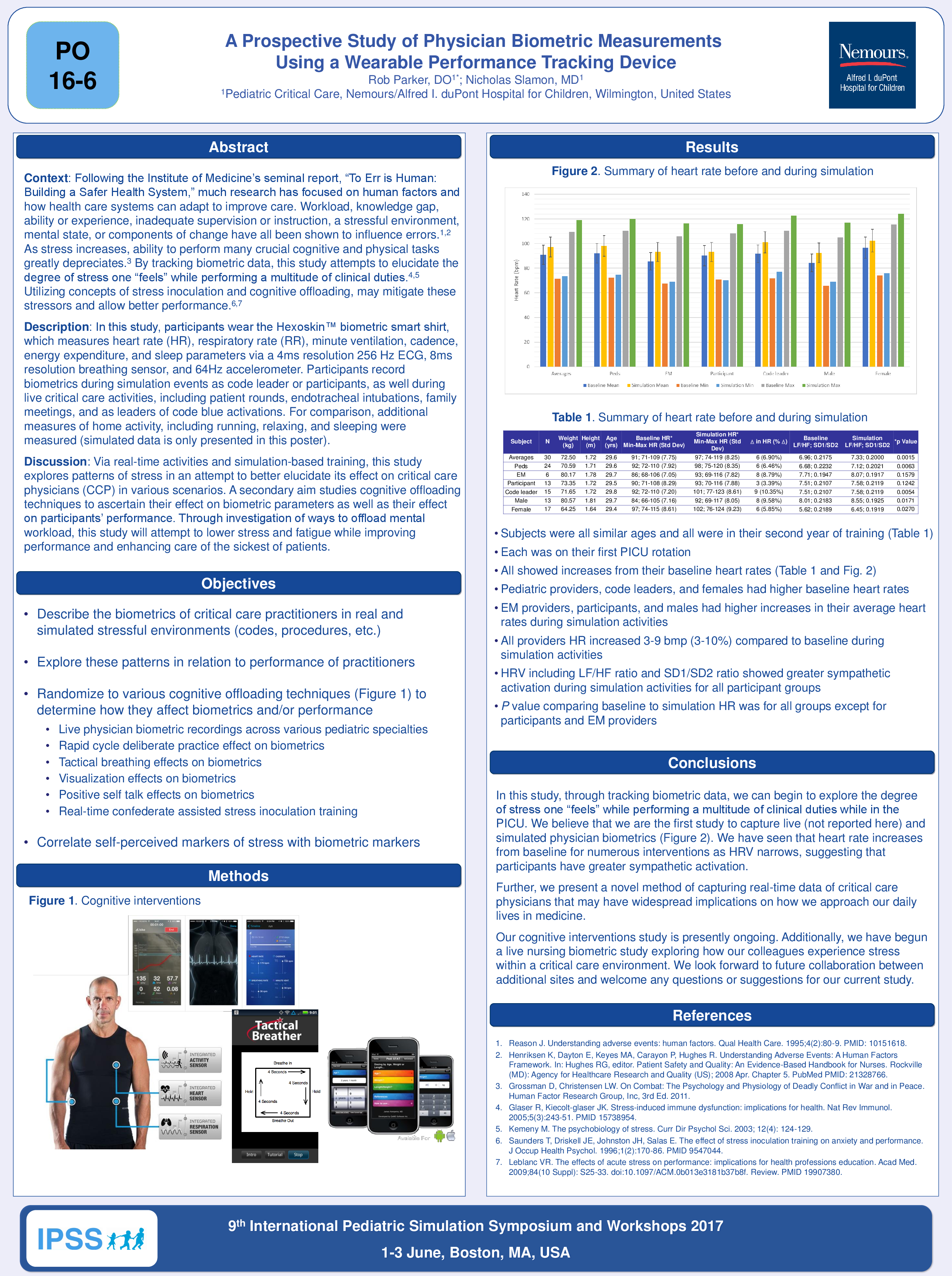Abstract
Context: Following the Institute of Medicine’s seminal report, To Err is Human: Building a Safer Health
System, much research has focused on human factors and how health care systems can adapt to improve care. Things
including workload, knowledge, ability or experience, inadequate supervision or instruction, a stressful environment,
mental state, and components of change have all been shown to influence errors1,2. As stress increases, our ability to
perform many crucial cognitive and physical tasks greatly depreciates3. By tracking biometric data, we attempt to
elucidate the degree of stress one “feels” while performing a multitude of clinical duties4,5. Through utilizing concepts of
stress inoculation and cognitive offloading, we then attempt to mitigate these stressors and achieve better performance6,7.
Description: In this study, participants wear the Hexoskin™ biometric smart shirt which measures heart rate (HR),
respiratory rate (RR), minute ventilation, cadence, energy expenditure and sleep parameters via a 4ms resolution 256 Hz
ECG, 8ms resolution breathing sensor, and 64Hz accelerometer. Participants record biometrics during simulation events
as code leader or participants, as well during live critical care activities including patient rounds, endotracheal intubation,
a family meeting and as leader of a code blue activation. For comparison, additional measures of home activity including
running, relaxing and sleeping were measured.
Discussion: Via real-time activities and simulation-based training, this study explores patterns of stress in an attempt to
better elucidate its effect on critical care physicians (CCP) in various scenarios. A secondary aim studies cognitive
offloading techniques to ascertain their effect on biometric parameters as well as their effect on participant’s performance.
Through investigation of ways to offload our mental workload, we will attempt to lower stress and fatigue while improving
performance and enhancing care of the sickest of patients.






